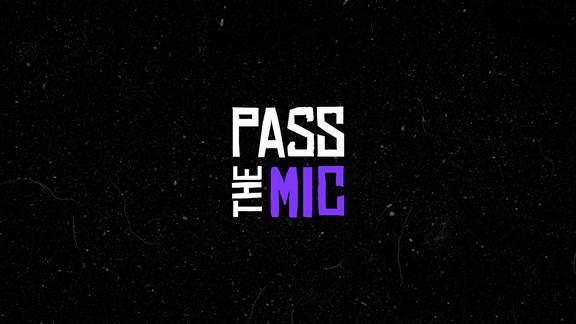On Tuesday, we #PasstheMic to those with enriching perspectives to share their views and goals. Today, Tyree Solomon-Phillips, Technical Analyst at Kin + Carta Create shares his lived experiences and learnings with us.

Pass the Mic
Where do I begin? This is the question that first crossed my mind when volunteering to write this piece to be read by my colleagues. How do I begin to share a glimpse into what it’s like to be me everyday in public and in the workplace? I live in a world where I have to constantly monitor how I present myself to others so they don’t feel uncomfortable or threatened by the way I dress, by what I say, or my actions. How do I begin to articulate what it feels like to not see yourself represented in leadership positions, or what it’s like to be able to count on one hand how many of your colleagues look like you in the office? Sadly, this has been my experience and something that has become more salient over the last few weeks and months since this movement sparked numerous conversations with friends and colleagues. As a result, I have reflected on my experiences, on what it’s like to constantly think about how others may perceive my appearance or opinions. I have also thought more about how I feel when there is little or no Black representation within my place of work.
In my experience growing up in Philadelphia there were a lot of opportunities to get mixed up with the wrong group of friends and get into all kinds of trouble. Thankfully, I never did get into any real trouble, especially as a teenager because that’s around the age I started to realise on a small scale that I had a target on my back because of the way I looked. My mother and grandmother were keenly aware of this fact and from a young age taught me what not to wear, how to speak to the police if I got pulled over, where my hands should be positioned, and not make any sudden movements when interacting with them. They were trying to teach me how the police might view my appearance or actions due to the perception that Black males pose a threat. If I didn’t take steps to minimise their mental representation of me, it could give them the justification they needed to react with violence.
As an adult, I still carry those same lessons with me everyday. When I want to pick up a late night snack in the winter, when I often wear a hooded sweatshirt, I am first and foremost keenly aware of my blackness and how other people might perceive me while wearing that hoodie. Furthermore, just seeing a cop car drive past me on my snack run is enough to make me take notice because I have to be prepared that there is a possibility they’ll see me as a threat before anything else, due to the way I am dressed.
While the threat of police violence is not present in the workplace, I still have to govern what I say so no one around me feels uncomfortable. I’ve gotten so used to conforming and constantly policing what I say to avoid making others feel uncomfortable that when topics around race or diversity come up I usually don’t express my opinion or avoid the interaction entirely. For example, even while my company is beginning to discuss these sensitive issues on a larger scale, I still sometimes second guess if I should express my opinions for fear of alienating my colleagues. This is one of the reasons why I believe representation matters in the workplace at all levels. When there are more people in meetings, on your team, in leadership positions, or on the board who share your lived experience or background it gives others the courage to speak their mind without fear of being misunderstood.
Despite my initial anxiety around expressing my experiences as a Black man in public and in the workplace, I wanted to take advantage of this opportunity to not only challenge myself to speak up, but to maybe open other people's eyes and minds to some of the everyday actions or encounters they take for granted. I am very happy that Kin + Carta is taking steps to learn from and better support their Black employees. The challenges facing Black people in America are deep rooted and complex but there are some simple things that can change. I want to be able to walk down the street at night wearing a hoodie without being perceived as a threat by the police; I want to be able to walk into my workplace and not count how many Black people there are; I want to move freely in the world and just be who I am.